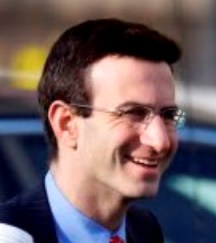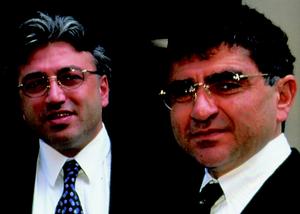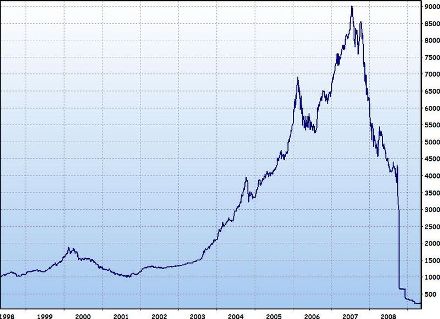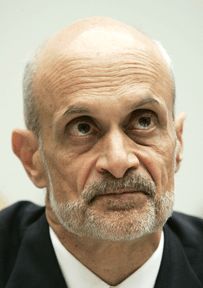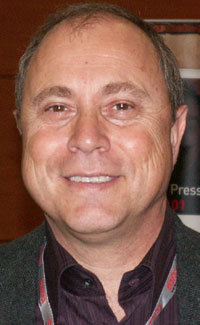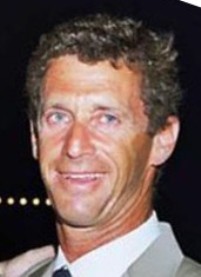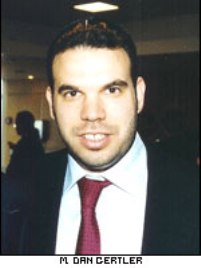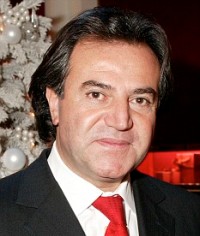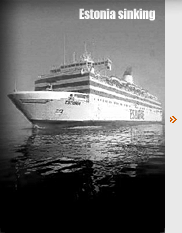
|

|

|
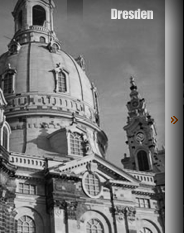
|

|
 Iceland - The Hallmarks of an Israeli Operation
Iceland - The Hallmarks of an Israeli Operation

Iceland - The Hallmarks of an Israeli OperationJune 16, 2010 The Israeli Role in the Plundering of Iceland THE HALLMARKS OF AN ISRAELI OPERATION Shortly before the catastrophic collapse of Iceland's three major banks in the fall of 2008, the island nation was ranked as one of the wealthiest and most productive nations in the world. The financial damage caused by the plundering of Iceland's banks is the worst suffered by any country in economic history relative to the size of its economy.
When the privatized banks of Kaupthing, Glitnir, and Landsbanki collapsed in October 2008 they had reportedly amassed debts equivalent to 12 times Iceland's gross domestic product. The looting of the Nordic nation's banks did not happen by accident, but was done through a conspiracy that has the distinct hallmarks of an Israeli intelligence operation. Recognizing these hallmarks is essential to solving the crime and preventing it from occurring to other nations. When the Icelandic banks were privatized in 2002-2003, through "a series of insider dealings," the stage was set for massive amounts of debt to be "uploaded" to the newly-deregulated banks through the acquisition of foreign companies that were net debtors. When they finally collapsed under a mountain of debt, the three major Icelandic banks reportedly held an estimated foreign debt of nearly $100 billion. For a nation the size of Kentucky, with a population of a small U.S. city (about 320,000 like Aurora, Colorado), the banks' debt translates to more than $200,000 per resident. The assets of Icelandic pension funds, a pool of wealth that current U.S. budget czar Peter Orszag studied before the collapse, were expected to shrink by as much as 25 percent. Orszag's involvement in the Icelandic operation is suspicious in light of his previous work in Russia during the period when it was being plundered by Jewish robber barons following the collapse of the Soviet Union.
So, how were the hardy Vikings of Iceland plundered? The Icelandic heist was carried out in the same way as the plundering of the U.S. Treasury in 2008-2009, through an unregulated "economic bubble" scheme very much like a Bernard Madoff investment fund. How the scheme operates is fairly simple. An entity, in this case a private bank, is puffed up to look like it is doing amazingly well. Like Madoff's funds, the appearance of success brings in new investors while keeping the image – and the operation – up and going. The image of wealth and prosperity is, however, only a false front that is used to bring more money into the operation. In reality, the criminals like Madoff running the operation are sucking every last penny they can out of the operation – in this case giving huge unsecured loans to scoundrels like Robert Tchenguiz - "Kaupthing's biggest client as well as director of its largest shareholder." The Tchenguiz formula for property deals is like Larry Silverstein's: borrow heavily to buy the property, and then raise the rent to pay off the loan. (Silverstein, who obtained control of the Twin Towers at the end of July 2001, raised tenants' rents by 40 percent.) Tchenguiz reportedly borrowed more than 1.7 billion Euros (more than $2 billion) from Kaupthing to finance his private investments. But how can a single individual, a foreign national, borrow some $2.5 billion from an Icelandic bank in unsecured loans, causing it to collapse? Tchenguiz, a shameless fraudster, is now trying to sue the Icelandic banks.
The Robert Tchenguiz operation, named Rotch, "is a complex web of about 600 different companies, with Vin-Rotch Properties, the ultimate holding group, based in Panama." Robert and his brother Vincent are directors of more than 300 companies each. The Tchenguiz family was reportedly "the second biggest landlord in Britain" in 2003. How can a playboy who spends much of his time carousing on yachts off St. Tropez run a "complex web of about 600 companies"? He can't, and he doesn't. "At the top of the chain is Rotch Property Group, based in Mayfair," the Telegraph reported in May 2003. "It's biggest shareholder is a Panamanian company called Vin-Rotch Properties and the ultimate controlling party is the Tchenguiz Family Trust," which is known to be run by his father, Victor Tchenguiz in Israel. "From a structural point of view," Robert said, "Rotch is a family business and ultimately owned by our family. The way it's owned – Panama – I don't know if that's of interest to your readers, that's not necessarily something I want to tell them." "The accounts of Rotch are impenetrable," the Times noted, and the family business is "a web of unfathomable companies with tentacles reaching deep." The Tchenguiz operation is actually an Israeli octopus run by Victor and a team in Israel. The whole operation is based on swapping debt, which is loaded onto a chosen victim (like Kaupthing) – which is then shoved off a cliff. Tchenguiz's brother Vincent was quoted in 2005 as saying: "About three-quarters of our business is debt…but it has come down considerably – about 20 percent [i.e. from 95 percent] – over the years. It's about £3 billion at the moment." When the puffed-up operation collapses, the outrageous debts are simply passed on to the state, the central bank, and the people. Kaupthing "failed to recoup a total of £1.47 billion (about $2.5 billion) – equivalent to 45 percent of deposits – advanced to Tchenguiz's operations." Because the Tchenguiz family (of London and Israel) played such a big role in the plundering of Iceland, I call it Operation Tchenguiz (as in Genghis Khan).
OPERATION TCHENGUIZ It was back in the early 1980s while visiting my mother's cousin in Sacramento that I first learned how Israeli criminal gangs robbed banks in America. My relative's husband, who held a senior position at the California Board of Equalization (i.e. the state agency for tax administration), told me about an organized gang that had set up phony jewelry shops in the Los Angeles area. Members of the gang would rifle through the trash bins behind expensive stores on Rodeo Drive in order to find carbon copies from credit card purchases. The gang would then use the pilfered credit card numbers to ring up fake purchases from their fake jewelry stores. The primary losers in this scam were the banks, which lost a great deal of money before the racket was shut down. All of the members of the criminal network, I was told, were Israelis. Shortly thereafter, while on a sojourn in Puerto Rico where I worked as a sailing instructor, I came across a similar Israeli operation engaged in agriculture. I attended a Jewish holiday party held by the Israelis involved in this commercial enterprise. This operation was centered near Ponce on the south shore and was involved in producing melons and fruit. I recall seeing their logo on the produce boxes in the local supermarkets. Two years later, when I was back on the island, I learned that the farming operation had suddenly shut down and the Israelis had left the island owing more than $67 million to local banks.
These are just two of the Israeli criminal financial scams I personally became aware of in the early 1980s in which the primary targets were American banks. There have certainly been other much larger scams of this sort perpetrated by Israelis in the United States. Such organized criminal activity is actually quite typical of Israelis in America. During the past three decades, primarily because the U.S. government has not cracked down on it, the Israeli criminal network has been allowed to grow while increasing the range and complexity of its operations in the United States. Zionist control of the U.S. Department of Justice has enabled Israeli criminals to escape prosecution, which was painfully evident in the official mishandling of the 9-11 investigation by Assistant Attorney General Michael Chertoff – the son of an Israeli Mossad agent. Chertoff is the person responsible for the "non-investigation" of 9-11 who authorized the wholesale confiscation and destruction of crucial evidence.
The hallmark of an Israeli operation, such as the false-flag terror attacks of 9-11, the Madoff scam, or the government bail-out of A.I.G. and Goldman Sachs, is the presence of Israelis (or Zionist agents) at the key nodal points of the operation. Not only are all the key players in the operation Israelis or Zionists, but so are the investigators, media interpreters, prosecutors, and judges who wrap up the loose ends of the crime. The clearest indication of a major Israeli crime is the presence of a Zionist at the critical points of the operation. In this respect, the plundering of the banks of Iceland is similar to the Madoff scam. The biggest "losers" in the Madoff operation were fellow Zionist crooks, such as orthodox Jewish fraudsters Jacob Ezra Merkin and Sonja Kohn of Bank Medici. Merkin and Kohn operated "feeder funds" that funneled billions of dollars directly into the Madoff pipeline. More than half the money that disappeared in the Madoff pipeline came from such "feeder funds." In this way tens of billions of dollars were sent to secret offshore Zionist-controlled accounts -- where they remain to this day. The controlled media's focus on Madoff's Jewish "victims" serves to divert public attention from the fact that the co-conspirators in the Madoff scam are Zionist orthodox Jews connected to private Israeli banks – with secretive branches in Switzerland (and other offshore tax havens). The focus on high-profile Jews who claim to have lost money in the Madoff scam is meant to mollify public anger against the Zionist-controlled judicial system that is protecting the criminal network behind the Madoff scam -- and its ill-gotten gains. The Icelandic operation has the distinct profile of an Israeli operation. The First Lady of Iceland and Robert Tchenguiz, the largest borrower from Kaupthing, are both from Persian Jewish families of jewelers (with affinities for Genghis Khan) based in Israel, but this is only the tip of the iceberg. While there are many other foreign Jews connected to the Icelandic heist, it is the involvement of Jews with connections to Israeli intelligence that reveals the outline of the Israeli operation. WHO OWNS THE BANK? The superficial reporting in the Zionist-controlled media obscures the Israeli connections. The New York Times, for example, reported on 8 May 2010 that Hreidar Mar Sigurdsson and Magnus Gudmundsson, former executives of Iceland's Kaupthing bank, had been arrested. Kaupthing was the largest of the three Icelandic banks that collapsed in October 2008 "under a mountain of debt, causing the Icelandic currency to crash and sending the economy into a tailspin." "Magnus Gudmundsson, a former Kaupthing executive who now runs a privately held bank in Luxembourg, was also arrested," the Times reported. This raised the obvious question about what kind of bank would be run by a former executive of a bank that had failed so badly as Kaupthing. The private bank that Gudmundsson was running when he was arrested in May was actually the former Kaupthing Luxembourg, a branch that had been taken over in July 2009 and renamed Banque Havilland S.A., after the Guernsey mansion of secretive David "Spotty" Rowland – the new owner of the bank. Kaupthing Luxembourg was bought by Blackfish Capital, "a small British hedge fund" owned by David Rowland, a British tax exile based in the Channel Islands, and his son Jonathan David Rowland, managing director of Citigroup's European Financial Entrepreneurs Group. Despite being a tax exile, David Rowland is the largest contributor to Britain's Conservative Party, which recently won control of the government. When he gave more than £1 million to the party of David Cameron, Rowland said he gave the money because of his concern for "liberty." When the former CEOs of Kaupthing and Banque Havilland were arrested, Icelandic Prime Minister Johanna Sigurdardottir said: "It's crucial that the players in the collapse are held accountable. I'm still of the opinion that the lending practices of Kaupthing were either unethical or illegal." Sigurdardottir said Kaupthing had lent 1.5 trillion kronur ($11.5 billion) in transactions that were "if not illegal, completely unethical." The loans were granted to 10 "interlinked parties." The sale of Kaupthing Luxembourg is a very interesting event for various reasons. First is the media silence in Iceland…Why the silence about one of the most valuable assets Iceland has, not from a financial point of view, but from that of the value of information it has on the whole economic collapse and all the very dubious deals going on at Kaupthing and in fact other banks as well. Did Rowland buy Kaupthing Luxembourg in order to control critical information about where billions of dollars had gone? Was Kaupthing Lux a key conduit in Operation Tchenguiz? David Rowland is connected to Israel in several ways: · Rowland manages the Tchenguiz Depository Trust, a fund belonging to Israel-based Victor Tchenguiz; Jonathan Rowland was the founder (with his father) and CEO of JellyWorks Plc, a private equity fund that invested in budding Internet companies. The company only lasted 8 months from its flotation in December 1999 until it was acquired by Shore Capital in August 2000. David Rowland was the biggest shareholder in Shore when it bought JellyWorks. Rowland's investment of £12 million in the company was bought out for £45 million – a nearly four-fold return. Jonathan Rowland has a vision of becoming a banking dynasty: "I want to run an investment house like the Rothschilds or the Flemings," he says. "There is no one around like that any more." There is also an amazing 9-11 connection. Jonathan Rowland was supposed to be at a meeting at the World Trade Center on 9-11 – but stayed away, just like Larry Silverstein and 4,000 Israelis, saying he had a hangover. As The Independent (U.K.) reported in October 2003: He had a meeting scheduled in the World Trade Center on the morning of 11 September 2001. But having overdone a "quiet drink" the previous night, he was in his hotel room nursing a glass of Alka-Seltzer when the planes hit the twin towers. Was it really a hangover that kept Jonathan Rowland from attending the meeting he had flown across the ocean for – or did he also get a message telling him to stay away from the World Trade Center, like the 4,000 Israelis who were supposed to have been in the Twin Towers on 9-11? Are the Rowland's tied to the network of Israelis suspected of pulling off 9-11? It certainly appears that they are. ZVI MAROM AND THE MOSSAD
The Luxembourg subsidiary of Kaupthing was established in 1998 and has a branch in Geneva, Switzerland. This is the same model as the privatized Israel Discount Bank (IDB), which has a subsidiary in New York and a branch in Switzerland. One of the directors of IDB New York, Seymour Merinsky (aka Sy Syms) was a business partner of Bernard Madoff at Yeshiva University's Syms School of Business. Icelandic investigators have reportedly put two secretive Israeli property tycoons, Moises and Mendi Gertner, orthodox Jewish brothers affiliated with the Mossad's diamond-dealing Benny Steinmetz, under scrutiny. The Gertner brothers reportedly bought a 2.5 percent stake in Kaupthing Bank in June 2008 for 14 billion kronur ($176 million). Why did the Israeli property and diamond-dealing Gertner brothers (co-owners with Israeli right-wing diamond tycoons Benny Steinmetz and Dan Gertler of Nikanor, a copper and cobalt mining operation in the Congo), invest in Kaupthing when it was clearly failing?
Steinmetz and Gertler, founder of the DGI Group, are close to and supported by the Israeli military/intelligence establishment. They are friends of Israel's foreign minister Avigdor Lieberman and prime ministers Ehud Olmert and Benjamin Netanyahu. Why would Israeli diamond and mining tycoons connected to Israeli intelligence invest in an Icelandic bank on the verge of collapse? Were they simply using funds borrowed from the bank to try to prop it up just four months before it collapsed? Simon Halabi, a Syria-born Jew who was another big borrower from Kaupthing, disappeared owing some $75 million to the bank. Halabi, a property tycoon who was estimated to be worth £3 billion in 2007 was declared bankrupt in the High Court of London at the end of March 2010 over a £56.3 million loan he received from the bank's British unit, Kaupthing Singer & Friedlander. Halabi was not present at the hearing and no representations were made on his behalf. Halabi's last address was at a hotel in Switzerland. Why would Simon Halabi be in Switzerland? Most likely because that's where he stashed the money.
Selected Sources: “Gertler’s Bling Bang Torah Gang: Israel and the Ongoing Holocaust in Congo” by Keith Harmon Snow, 9 February 2008 |



